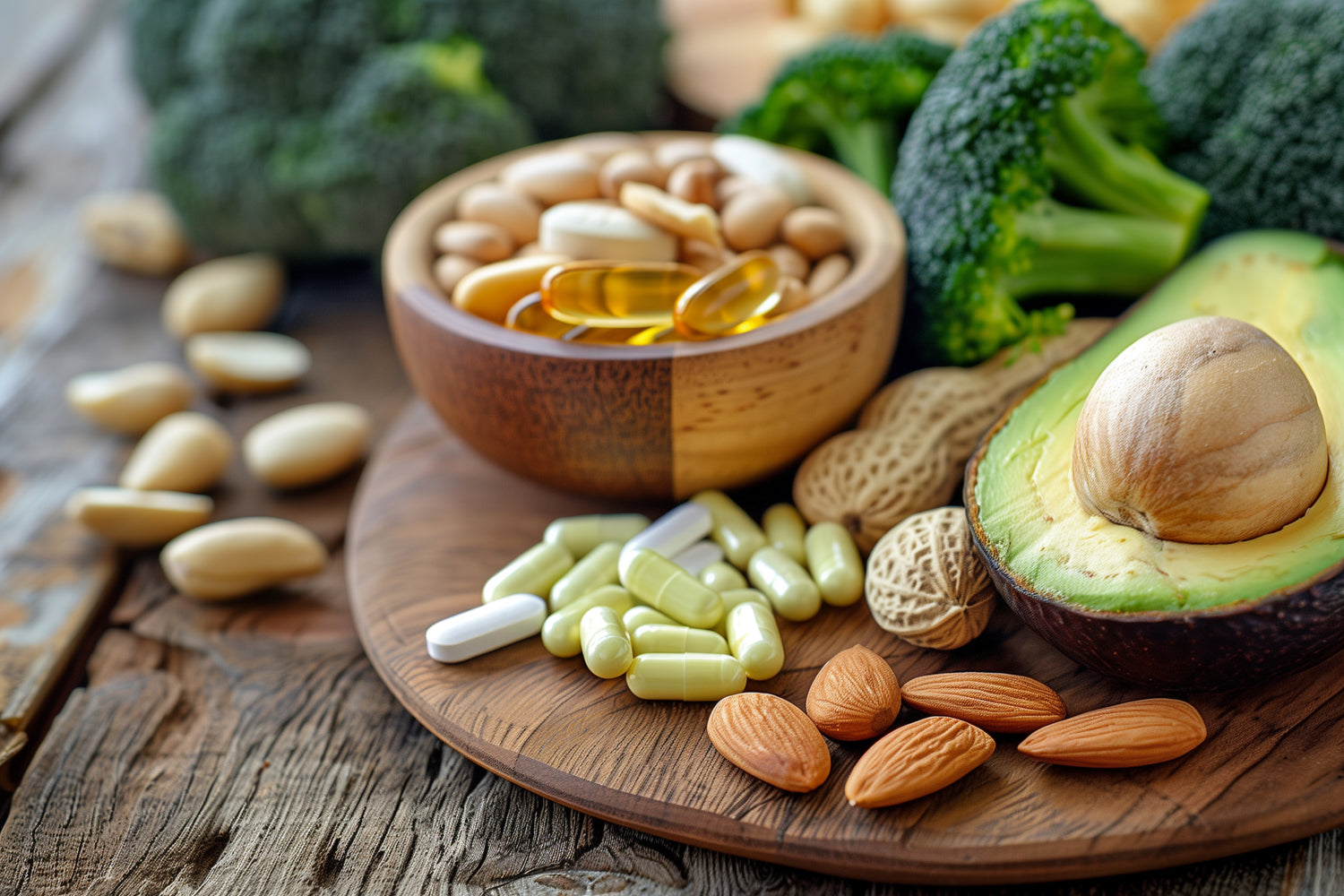When considering nutrition, many wonder which option works best: supplements vs whole foods nutrition. Both play essential roles, but your body processes their nutrients differently. Let’s dive into why supplements and whole foods offer unique benefits, how your body absorbs them, and what factors impact nutrient intake.
Whole Foods vs. Supplements: The Difference
Whole foods like fruits, vegetables, meats, and grains deliver nutrients in their most bioavailable forms. They contain essential vitamins, minerals, fiber, and phytonutrients that work together to boost absorption. For example, the vitamin C in citrus fruits not only strengthens your immune system but also increases iron absorption from plant-based sources.
On the other hand, supplements offer a concentrated dose of specific nutrients. People often use them to address dietary gaps or meet increased nutritional needs. However, supplements don’t always include the co-factors found in whole foods that aid absorption. This distinction remains central to the supplements vs whole foods nutrition conversation, as whole foods often provide more efficient nutrient delivery.
Factors Affecting Nutrient Absorption
Your body’s ability to absorb nutrients varies based on several factors:
1. Digestive Health
Your gut health directly impacts nutrient absorption. Conditions like IBS, leaky gut, or low enzyme levels can hinder nutrient intake, regardless of whether you consume food or supplements.
2. Nutrient Competition
Certain nutrients compete for absorption. High calcium intake, for example, can interfere with iron and zinc uptake. Whole foods usually provide a balanced mix of nutrients, reducing this competition, while isolated supplements can create imbalances if taken in large doses.
3. Bioavailability
Bioavailability measures how well your body absorbs nutrients. For instance, folate in supplements often shows higher bioavailability than in foods, while vitamin E from foods absorbs better than from supplements.
4. Individual Metabolism
Metabolic differences, influenced by genetics, age, gender, and medications, affect nutrient absorption. For example, older adults often absorb vitamin B12 less efficiently from food due to lower stomach acid levels, making supplements more effective.
Why You Need Supplements Sometimes
Even with a balanced diet, you might still need supplements. Here’s why:
- Vitamin D: Sunlight serves as the primary source, so if you lack exposure, consider supplementing to maintain healthy levels.
- Vitamin B12: Since animal products provide the main source of B12, vegetarians and vegans often benefit from supplements.
- Iron: Women with heavy menstrual cycles or those with iron-deficiency anemia need supplements to meet daily requirements.
How to Balance Whole Foods and Supplements
Striking a balance ensures better nutrient intake. Use these tips:
- Pair nutrients effectively: Combine vitamin C with iron to boost iron absorption.
- Add healthy fats: Fat-soluble vitamins (A, D, E, K) require dietary fats for absorption, so include foods like olive oil or avocado in your meals.
- Choose high-quality supplements: Select whole-food-based supplements or those with better bioavailability, like methylated B-vitamins.
- Monitor your body’s needs: Pay attention to your body’s signals and consider nutrient testing to identify gaps, especially with dietary restrictions.
Conclusion: Whole Foods and Supplements Together Enhance Nutrition
Whole foods and supplements both contribute to good nutrition. Understanding how your body absorbs their nutrients can help you make smarter choices. The supplements vs whole foods nutrition debate highlights the importance of knowing what your body needs and how to provide it efficiently. It’s not just about what you consume—it’s about how well your body uses those nutrients for optimal health.




Leave a comment
This site is protected by hCaptcha and the hCaptcha Privacy Policy and Terms of Service apply.